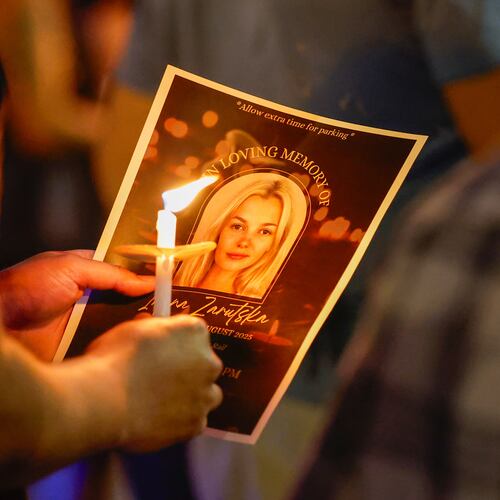ATHENS — The high-profile murder trial of Jose Ibarra, the suspect accused of killing 22-year-old nursing student Laken Riley on the University of Georgia campus, is scheduled to begin here Friday.
The proceedings could move quickly after Ibarra, who has pleaded not guilty, opted for a bench trial instead of a jury.
Riley’s body was found by police Feb. 22 in a wooded area about 65 feet off a running trail near the university’s intramural fields. She had gone for a jog that morning.
Her killing added fuel to an already intense national debate over U.S. border security. Ibarra, a Venezuelan national, entered the United States unlawfully in 2022, says U.S. Immigration and Customs Enforcement. He and two of his brothers, who also came into the country without authorization, were taken into custody in Athens the day after Riley’s death. The brothers are not charged in the killing.
Ibarra, 26, waived his right to a jury trial in a preliminary hearing on Tuesday, opting instead to have Superior Court Judge H. Patrick Haggard listen to the evidence and render a verdict.
Credit: HYOSUB SHIN / AJC
Credit: HYOSUB SHIN / AJC
Bench trials typically move more quickly than jury trials, according to Nirej Sekhon, a law professor at Georgia State University. He added that defendants who opt for this route oftentimes trust judges to be “more evenhanded” than a jury of peers when determining facts of a case.
“In a high-profile case where passions are inflamed, you can see why a defendant might be inclined to credit a judge’s fact-finding ability as opposed to a group of lay jurors,” Sekhon said.
Ibarra is charged with felony murder, malice murder, kidnapping with bodily injury, aggravated assault with intent to rape, aggravated battery, hindering a 911 call and tampering with evidence. He has pleaded not guilty to those crimes.
The district attorney’s office filed paperwork in court indicating it will seek a sentence of life in prison without the possibility of parole.
According to prosecutors, on the Thursday that Riley went out for her morning run, police received a 911 call just before 8 a.m. to report that an unidentified man had looked through a female student’s dormitory windows. University police responded minutes later, but did not locate the suspect.
At 9:10 a.m., Riley called 911 from her cellphone at a location less than 1,000 feet from the dormitory, the state says.
Several calls and text messages to Riley from her mother that morning had gone unanswered. Prosecutors said Riley’s roommates went looking for her on the running trails but couldn’t find her. The roommates reported Riley missing just after noon. Her “lifeless, beaten and partially unclothed body” was found half an hour later by university police. Riley had been asphyxiated and struck in the head several times with a rock, authorities said.
It was the first homicide on the grounds of Georgia’s flagship public university in more than two decades.
Credit: Courtesy photo
Credit: Courtesy photo
The next day, law enforcement officers were looking for the man seen in video footage near the dormitory and the dumpster of an apartment complex less than half a mile from where Riley was killed, prosecutors said. They said a police officer saw Ibarra’s brother, Diego Ibarra, at the complex wearing a baseball cap identical to the one worn by the man in the videos.
Diego Ibarra, 28, took the officer to his apartment in the complex, where his brothers, Jose Ibarra and Argenis Ibarra, were also located, prosecutors said. More officers were called, and one noticed Jose Ibarra had scratches and injuries on him, authorities said. Jose Ibarra was initially arrested on an outstanding bench warrant, and the apartment was searched later that day.
During preliminary hearings, the defense and prosecutors sparred over what evidence could be admitted. Judge Haggard denied defense motions for a change of venue. In addition, he denied a request to try separately a Peeping Tom charge that stemmed from Ibarra allegedly looking into the female student’s dorm window. Defense attorneys also tried unsuccessfully to argue that the trial should be delayed because it could take an expert up to six weeks to review DNA evidence.
Special prosecutor Sheila Ross, the director of capital litigation for the Prosecuting Attorneys’ Council of Georgia, will lead the state’s case.
Deborah Gonzalez, district attorney for Georgia’s Western Judicial Circuit, which includes Athens, has described Ross as a “knowledgeable and well-respected trial attorney” who has the expertise “to bring justice on behalf of Laken Riley.”
About the Author
Keep Reading
The Latest
Featured






